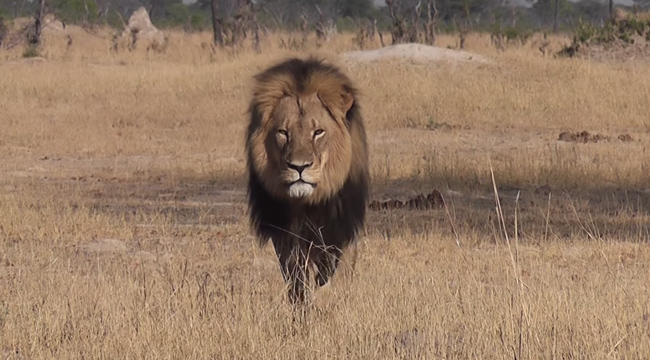
Heartbreaking new details have surfaced about the final moments of the life of Cecil the Lion, the beloved star attraction of Zimbabwe’s Hwange National Park who was killed by American dentist Walter Palmer back in 2015. Biologist Andrew Loveridge, who had been studying Cecil for eight years for Oxford University before his untimely death, has published a new book called Lion Hearted: The Life and Death of Cecil & the Future of Africa’s Iconic Cats.
Excerpts of the book released by National Geographic’s Wildlife Watch reveal that Cecil had been baited by Palmer’s hunting guide Theo Bronkhorst and wildlife tracker Cornelius Ncube with the carcass of an elephant that had been killed by another one of their clients the week prior.
Humans didn’t worry him. He was used to their scent from years of living in a prime photographic safari concession in the park. But these were not the humans he knew. To minimize the scent and sound that would drift across the clearing, these humans were hiding in a tree platform downwind of the carcass. Crouched on a small platform was an American with a broad, white smile, a powerful compound bow, and a quiver full of lethally sharp arrows. He was flanked by a stocky Zimbabwean guide.
It would have been freezing cold to sit agonizingly still in the cramped hide, but the hunters would have comforted themselves that the wait wouldn’t be long. This was an easy lion to hunt—a park lion, well-fed and habituated to people.
The book however disputes media reports that Cecil had suffered for 40 hours after being shot with the first arrow before Palmer shot him again and killed him with a hunting rifle. In reality, it was closer to 10 to 12 hours according to data sent by the GPS collar, but unfortunately that he still “almost certainly suffered considerably.” When later returning to the scene of the hunt with Bronkhorst, Cornelius recalled hearing poor Cecil “struggling to breathe.”
In 2017, Xanda, the six year old son of Cecil was shot and killed by a big game hunter in Zimbabwe, but the hunt was reported to be “entirely legal and within regulations.”
(Wildlife Watch via ABC News)
